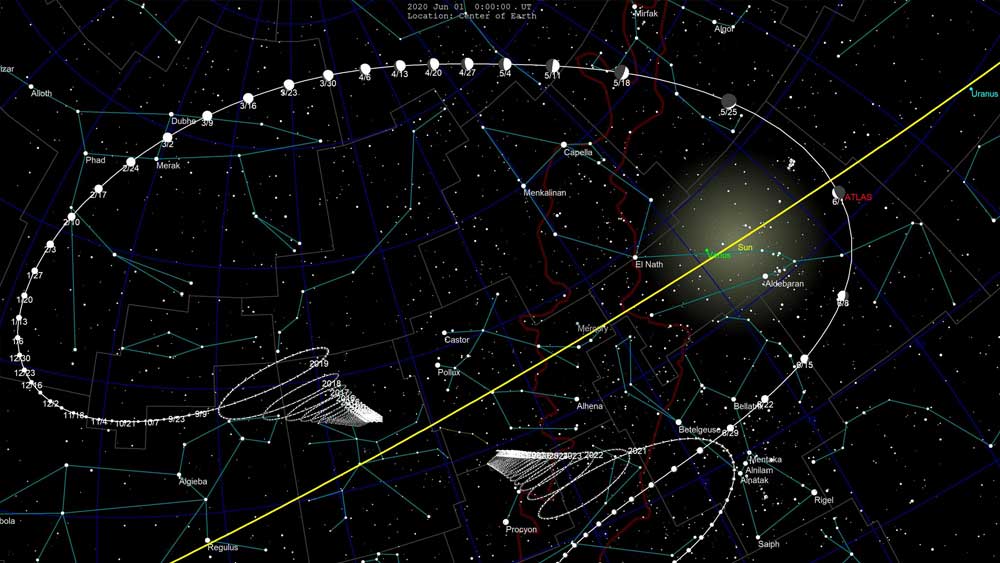
Comet ATLAS: Nighttime Diversion for Isolated Families
For northern-hemisphere families in isolation due to the coronavirus pandemic, a recently discovered comet may provide some needed diversion.1 This comet is dubbed ATLAS after the Hawaiian organization that discovered it: the Asteroid Terrestrial-Impact Last Alert system. The comet is barely bright enough to be seen with binoculars under dark sky conditions.2

"Hot Jupiter" on the Verge of Destruction
Astronomers have discovered a Jupiter-sized extrasolar planet (exoplanet) orbiting so close to its host star that it is “perilously close” to the distance where it can be torn apart by gravitational forces.1-3

New Estimate: Universe Two Billion Years Younger
Big Bang scientists recently used a new method to estimate the universe’s age. This method yields an age estimate that could be over two billion years younger than their current age estimate of 13.8 billion years.1,2 However, this new method has large uncertainties, so not too much can be made of this result.

Moon Is Unexpectedly Still Cooling and Shrinking
Scientists have concluded that our moon is probably still in the process of slightly shrinking as it cools.1,2



